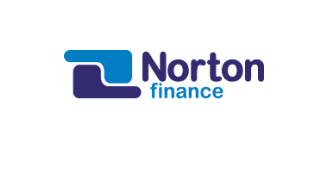Beginner’s guide to secured loans

What is a secured loan?
If you are a homeowner and need access to a large sum of money, you may be able to get a secured loan.
These loans are ‘secured’ against an asset, usually your home, and may also be called homeowner loans. They can also be secured against other valuable items, such as vehicles or jewellery.
If you fail to keep up with secured loan repayments, the lender has the right to force the sale of your property in order to cover the repayment of your debt.
This means secured loans can give lenders confidence that they will get their money back, but at the same time they can be risky for borrowers as you could lose your home.
Is a secured loan a mortgage?
No, but both secured loans and mortgages are loans that are secured against your property. So failing to repay either of these could result in you losing your home.
A mortgage is designed to help you borrow money to be able to afford to buy a house, while a secured loan is secured against equity in a property you already own and can be used for other purposes, such as paying for home improvements or consolidating debts.
How do secured loans work?
In most cases, you will apply for a secured loan through a broker. Brokers have access to different lenders and can help you to find the right kind of secured loan for your situation.
Once you have a secured loan, it will typically work in a similar way to most other loans. You will borrow a lump sum and then repay it, plus interest and fees, in regular instalments until the debt is cleared.
As long as you make your repayments, the fact your house is being used as collateral shouldn’t be a problem. However, if you fall behind on repayments, the lender could start repossession proceedings on your property to get its money back.
How much can I borrow with a secured loan?
Because lenders are able to repossess your property if you fall behind on payments, minimising some of the risk of lending, you may be able to borrow more than you could with an unsecured loan.
However, the amount you can actually borrow will depend on several factors, including the equity you own in your house. You will only be able to borrow up to the amount of equity you own, and it’s important to remember this isn’t always the total value of your property.
For example, if your house is worth £300,000 and you have an outstanding mortgage of £200,000, you own £100,000 in equity. You will only be able to use this £100,000 as security for a loan, however you may not be able to use all of the remaining equity as security for the loan.
What's the average interest rate on a secured loan?
The interest rates you can get on a secured loan depend on the lender, as well as a range of other factors, including:
- the amount you want to borrow
- the value of the asset you’re using as security for the loan
- the length of the loan term
- your credit score and overall financial situation.
Secured loan interest rates can sometimes be lower than interest rates on unsecured loans, as the asset acting as security minimises the risk for the lender. As a result, lenders may be more willing to offer a lower interest rate than if you applied for a loan without any kind of security.
What happens if I default on a secured loan?
Defaulting on a secured loan could have serious consequences. If you think you’re going to miss any payments or you’ve already missed one, you should contact the lender immediately to see if you can negotiate a new repayment plan.
If you are struggling with repayments, it may be useful to contact a debt advice charity, such as Citizens Advice or Stepchange, to get some help with your situation.
If you can’t come to an arrangement and you continue to miss payments, the lender is entitled to repossess your property. This is typically a last resort after the lender has tried all other ways to get you to repay the loan.
Bear in mind that missing payments can also affect your credit score.
Is a secured loan right for me?
Only you can know if a secured loan is worth getting. To make a decision, you will need to consider a number of factors, including:
- how much equity you own
- your financial situation
- your credit score
- how much you need to borrow
- what you need the loan for
- how much you can afford to repay each month
If you need to borrow a large sum of money, for home improvements, for example, then a secured loan could be a suitable way to finance this.
However, because your property is put at risk with a secured loan, you should be confident that you can afford to repay the loan in full. If an unsecured loan can meet your requirements, this may be a less risky alternative to go for as your property isn’t directly at risk of repossession.
Weigh up all the potential risks and think about what you can afford to borrow before deciding to apply for any kind of loan.
What do you need to qualify for a secured loan?
To qualify for a secured loan, you will need to own a certain amount of equity in your home or another high-value item. You will also need to meet the criteria of a provider, including any age and income requirements, for example.
Check the criteria set by a lender before applying for a secured loan to see if you are eligible.
How many secured loans can I have?
You may be able to have more than one secured loan on a property, although this will depend on the amount of equity you own in the property and the criteria of individual lenders.
As long as you have sufficient equity in your property and you meet the requirements of a lender, you may be able to take out multiple secured loans. However, any further loans secured against your property could have higher interest rates and stricter eligibility criteria. This is because the lender is taking on a greater risk as, if you default on the loan, they won’t be able to claim any money until the prior lenders have been paid off.
Existing lenders will often need to give their permission before another loan is taken out on the property.
You should bear in mind that just because you could theoretically have more than one secured loan, it doesn’t necessarily mean you should.
Are secured loans easier to get than unsecured loans?
In some ways, secured loans can be easier for an individual to get than an unsecured loan.
The security of the property gives lenders more reassurance that they will be able to get their money back, and so they may be more willing to offer loans to people who may be seen as riskier prospects, such as those with lower credit scores or those who are self-employed and may not have a steady income.
Unsecured loans offer no kind of security and carry more risk to the lender, which means they could be more difficult for borrowers to get.
However, even if you do qualify for a secured loan, it doesn’t mean it’s necessarily the right option for you. Make sure you’ve considered alternative options and, if you choose a secured loan, make sure that you can afford to repay it before applying.
How fast can I get a secured loan?
It is likely to take longer to get a secured loan than an unsecured loan as lenders will need information about the asset you’re providing as security.
To allow lenders to perform all the necessary checks, secured loan applications could take several weeks to process. However, once approved, it often should not take long to receive your funds.











































